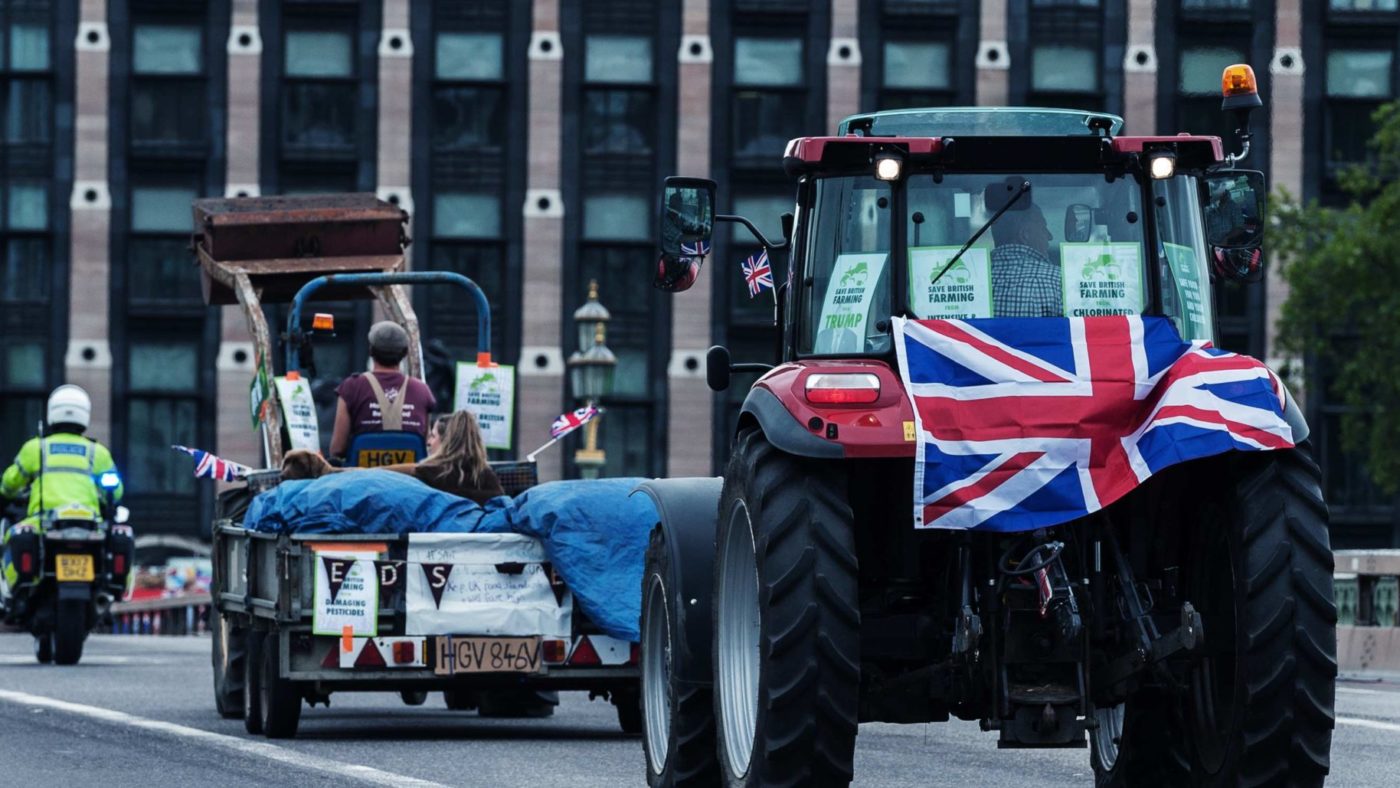As protests go it was hardly Stop The War or Black Lives Matter. Earlier this week a caravan of slow-moving tractors snaked its way through Parliament Square in a politely observed demonstration against US food imports.
If the gathering was relatively sedate, it reflected a battle already won. Not only have government ministers repeatedly affirmed that no ‘lower standard’ food will be reaching these shores, but a number of retailers have now announced that even if US chlorine-washed chicken or hormone-injected beef is permitted, they won’t stock it.
This been a remarkable debate, in that it’s been almost entirely one-sided. Politicians and journalists of all persuasions have bought wholeheartedly into a nakedly protectionist, almost wholly unscientific narrative, in which British shoppers risk being exposed to a flood – imports, like immigrants, are always ‘flooding’ in – of toxic sludge from across the pond. No product has typified this discourse like ‘chlorinated chicken’, a phrase that potently conjures all Brits’ sharpest fears about ‘funny chemicals’ in their food.
As trade expert Shanker Singham wrote recently for CapX, the nadir of this tendency has been the Mail on Sunday‘s Save our Farms campaign, an exercise in economic nationalism as potent as it is wrongheaded. Even a brief look at the evidence shows that the risks from American poultry are negligible – this really is just about insulating our farmers from competition.
The BBC has hardly covered itself in glory either, with recent articles such as ‘UK would be ‘insane’ to let in chlorinated chicken, farmers say’, in which we learn that ‘this practice was banned in the European Union in 1997 over food safety concerns’. The same report fails to mention that the European Commission itself tried to overturn the ban in 2008, or that the EU’s own Food Safety Authority found there were no risks to chicken that had been chlorine-washed. Nor does much of the reporting mention that most American producers don’t even wash their birds in chlorine.
More interesting than the ins and outs of this particular topic is the way that we seem to pick and choose which debates are going to get a dose of science. So when it comes to climate change, we hear a lot about IPCC estimates, temperature rises and sea level changes and so on. On coronavirus too, we’re told endlessly about ‘following the science’, with intense discussions about SAGE, the R number and the pros and cons of the Imperial Model.
None of that detail seems to apply to reporting on food, where quite extraordinary claims about nutrition, diet and so on are not only unchallenged, but actively celebrated. The triumph of the organic lobby in convincing credulous middle class shoppers that their product is worth paying a hefty premium for is a case in point.
Nevertheless, perhaps ministers are right not to bother putting too much effort into this particular battle. You needn’t be a wizened cynic to observe that politics is about choices and priorities. Ultimately, if giving into the farm lobby and the ‘Buy British’ brigade on chicken means more time for areas such as financial services or manufacturing exports, then perhaps it’s worth taking the hit.
Either way, the whole saga ought to finally bury the idea that this government is intent on some kind of slash-and-burn regulatory bonfire Brexit. Even with a big majority and an opposition that is still very much in recovery, the Tories are not gearing up to dispense with workers’ rights, privatise the NHS or, it now seems clear, import cheap meat from those dastardly Americans.
Click here to subscribe to our daily briefing – the best pieces from CapX and across the web.
CapX depends on the generosity of its readers. If you value what we do, please consider making a donation.


